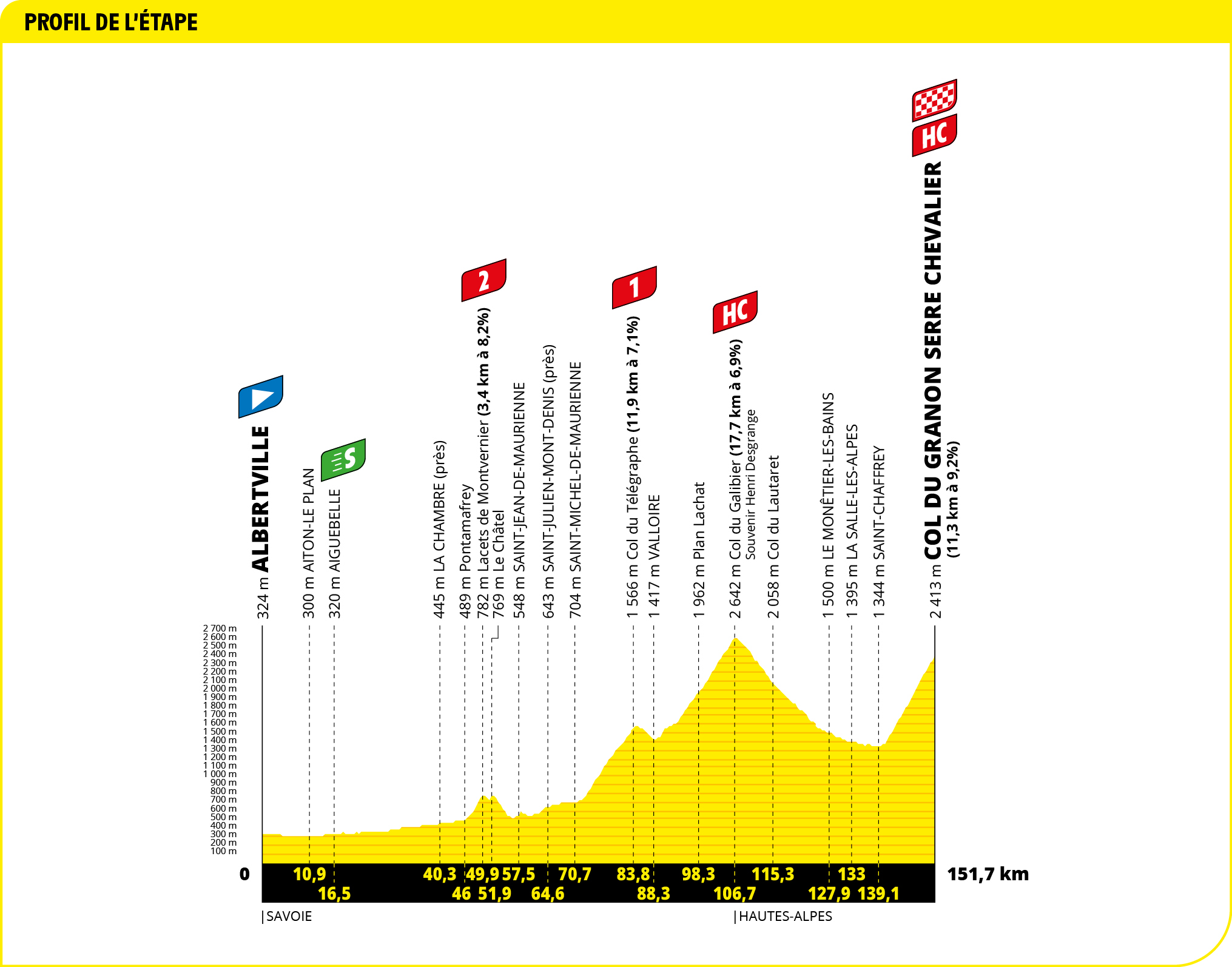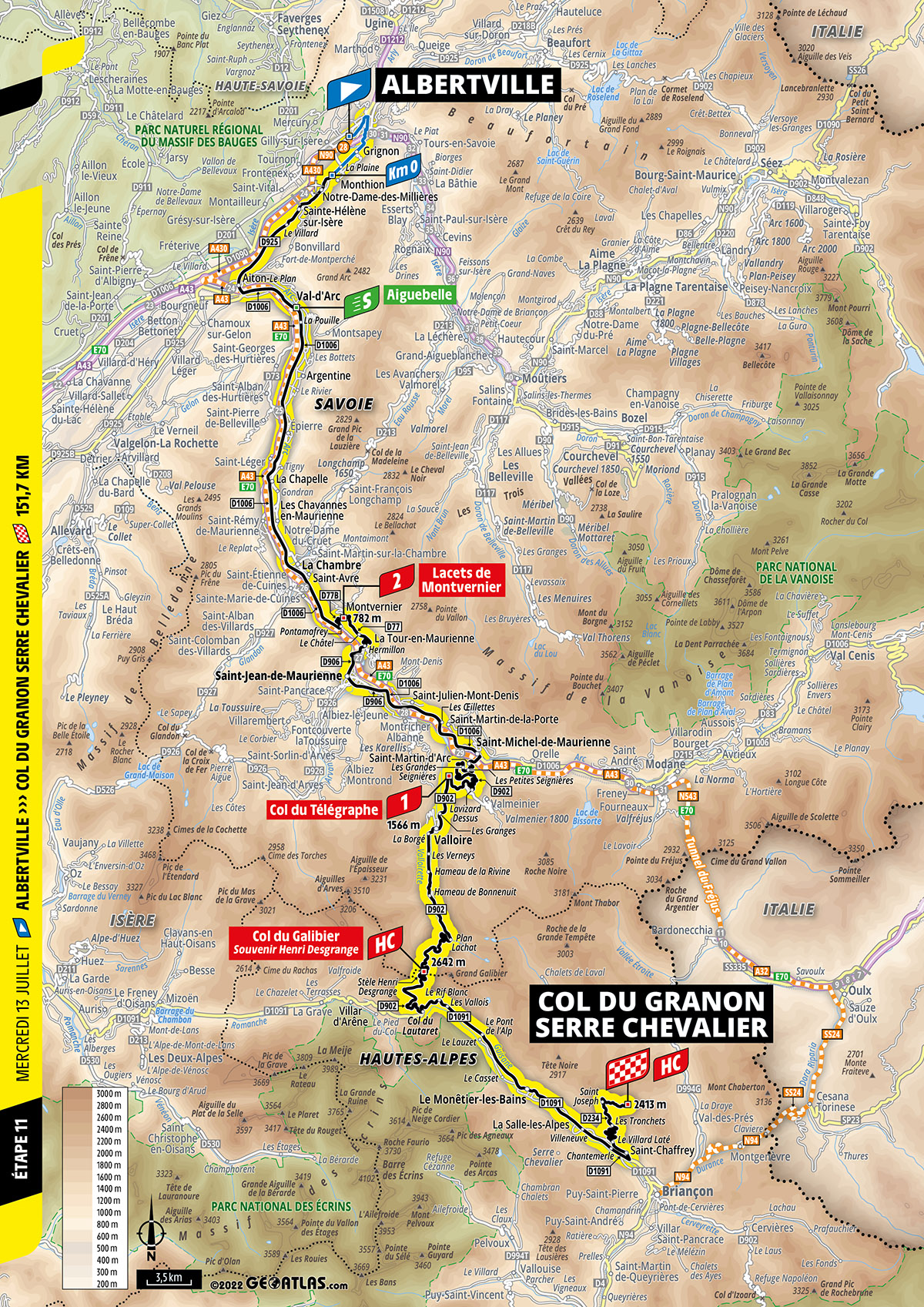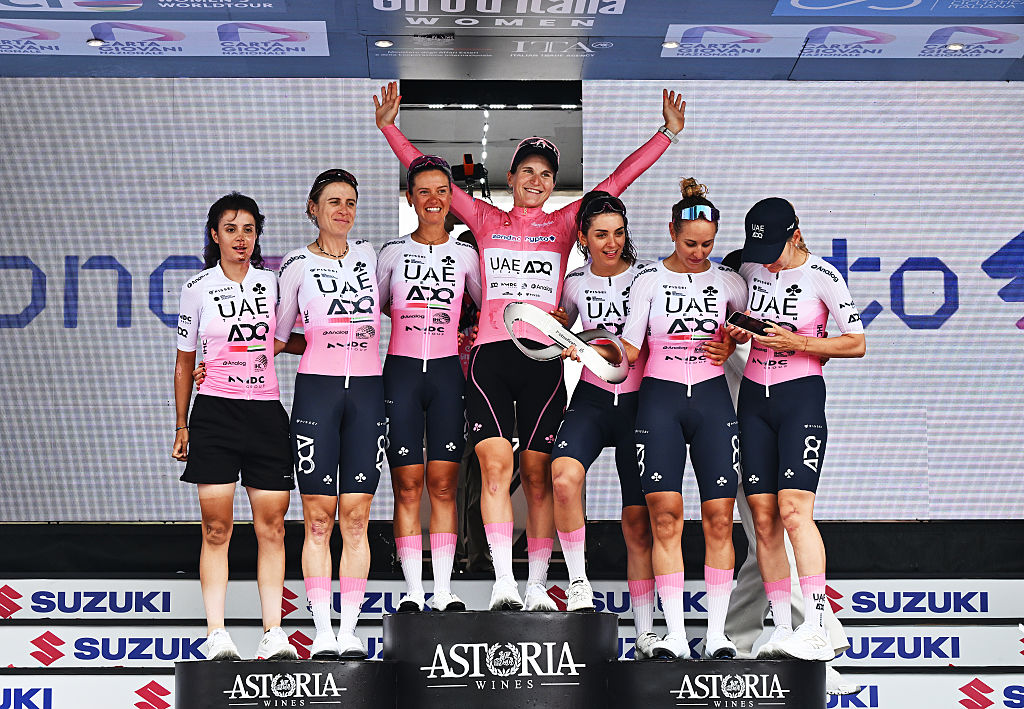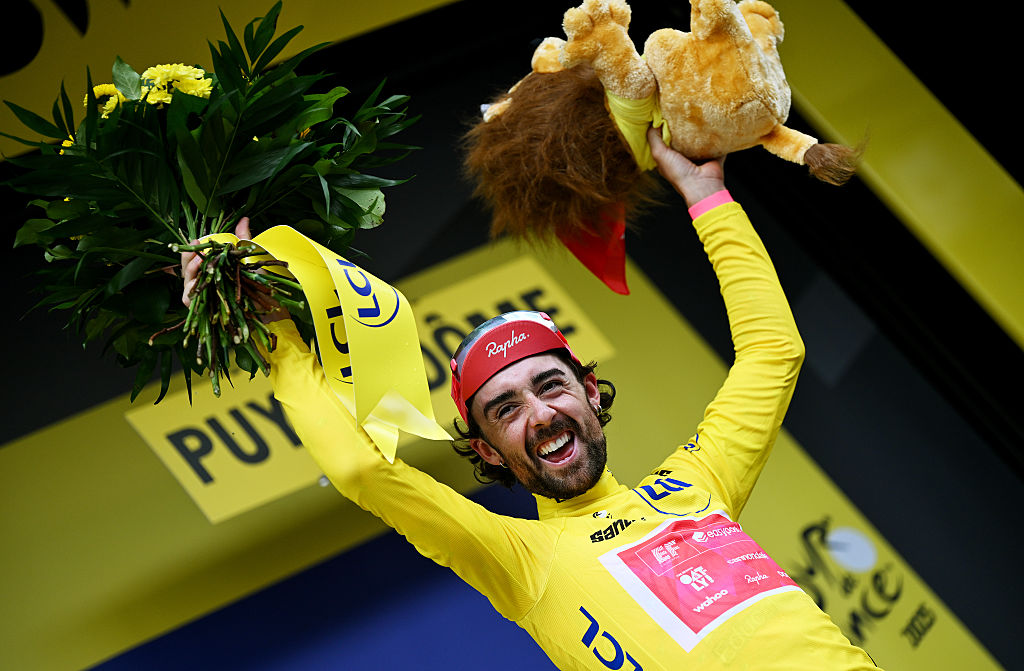Tour de France 2022 stage 11 preview - Tackling the rare summit finish of Col du Granon
Hardest Alpine stage so far of this year’s race set to test Pogacar and his depleted team

Stage 11: Albertville to Col du Granon Serre Chevalier
Date: July 13, 2022
Distance: 151.7km
Stage timing: 12:15 - 16:40 CEST
Stage type: Mountain
No matter what happens Wednesday on the Col du Granon in the Tour de France, to race leader Tadej Pogačar (UAE Team Emirates) or his closest pursuers Jonas Vingegaard (Jumbo-Visma) and Geraint Thomas (Ineos Grenadiers), the Col du Granon already has its permanent place in the race's history.
Just as the nearby Alpine ski station of Les Arcs will always be remembered as where Miguel Induráin's five-year Tour domination crumbled for good in 1996, or Pra Loup for Eddy Merckx in 1975 marked the final day that the Cannibal spent in yellow, the Col du Granon was where way back in 1986 the five-time Tour de France winner Bernard Hinault wore the yellow jersey for the last day in his career. As such, the Col du Granon (also sometimes called the Col de Granon) marked the end of a massive chapter in the sport.
There's no way we can expect so much from the Granon in its second appearance at the Tour, of course, even if Pogačar is already having to turn down two-edged compliments like being called 'the next Cannibal'. Nobody has as much in play as Hinault did when he was en route to a never-to-happen sixth Tour victory in 1986 after all.
However, given Pogačar's track record, and his potential path to yet more records, even if we focus solely on the current yellow jersey the outcome of stage 11 still matters, and enormously so.
It's definitely the hardest mountain stage so far of the 2022 Tour, after all, and equally unquestionably – together with the ascent to Alpe d'Huez the following day and the Hautacam in the third week – one of the three hardest of the entire race. If Pogacar gets through in yellow and without he or his team showing any weakness, the odds of him retaining it till Paris in 10 days time will be considerably higher.
From the Télégraphe and Galibier to Granon
As if to emphasise the contrast between the unknown value of the Granon and what has come before, on Wednesday's route the climb will be preceded by the much more familiar features of the second category Lacets de Montvernier. First used in 2015, back again in 2018, the lacets – or loops in English – peak out at kilometre 49 and therefore too far from the finish to have real relevance. But visually, with its improbably vertical chain of 18 hairpins, it will still be one of the most breathtaking moments of the season, let alone the Tour.
Then there's the first category Col du Télégraphe 83.6km in and, above all, the epically difficult, well-known monster climb of the Galibier, like the Granon ranked Hors Categorie and back in the Tour for a 38th time. With there being such a long distance between the Galibier summit and the start of the Granon, it's hard to expect much GC action on any of these climbs barring a perpetual hollowing out of the main group from the back from the Lacets onwards. But with Pogačar having lost a key climbing teammate in George Bennett on Tuesday and the gaps on the overall still being relatively small, a long-range attack certainly isn't out of the question.


There’s been plenty of talk about how the Slovenian’s rivals may use strength in numbers to try and undermine his superiority. But nobody needs reminding that Pogačar himself is a past master of making a devastating move at distance from the pack, and given the depletion of his team, rather than risk having too many opponents to control late on, turning an attack into the best form of defence might just be the yellow jersey's strategy on Wednesday.
Even so, most likely the Granon is going to be the key protagonist of the day. Pogačar could reach it at the head of the race, or one of his rivals in a dangerous break or – as happened in Hinault’s day – there could be a break of non-GC threats up the road and the front group of favourites down to 20 or 30 riders at its foot. Regardless of the scenario, the addition of a rarely seen, ultra-difficult Alpine climb in a race which has already had over a century of opportunities to find ascents like the Granon invariably sparks colossal novelty value. Particularly when it's been described by as formidable a climber as Sepp Kuss (Jumbo-Visma) on Tuesday as the hardest single climb of this year's Tour.
"It's so tough because there's literally no let-up," Philippe Court, a veteran cycling journalist and head of sport at the local newspaper Le Dauphiné Libéré tells Cyclingnews. "Just a couple of breathing spaces of around a couple of hundred metres where the gradient eases, but other than that it's truly relentless, around 9, 10 or 11 percent almost all the time, sometimes up to 18."
"Normally, that kind of climb so near to so many other famous climbs would make the Granon automatically appealing for the Tour. But it's a road that ends in a cul-de-sac with no way out apart from an un-tarmacked track down to the next valley, and it's really narrow in places. So that makes it very hard to hold a stage, so much so they're severely restricting the number of journalists today allowed to go up to the finish."
Essentially a service road that only leads to two nineteenth-century military forts, the L'Olive and the Lenlon, designed to protect the city of Briançon in the valley below, the Granon is also "extremely exposed to the wind" Court warns. Although the six hairpin bends on the road's lower slopes allow for a certain degree of relief from a head or tail wind, on mostly treeless, empty mountainsides – Court's description of them is "austere" – the upper segment, broken only by one famous hairpin, the curve Saint-Joseph, will offer no such respite. As Court puts it, "it’s like it’s been designed so that as a bike rider, you're always under pressure."
Then there's the altitude, too. Peaking out at 2,416 metres above sea level, the Granon was for a long time the 'ceiling' of the Tour's summit finishes, a record only broken by the nearby Galibier in 2011. "But the lack of oxygen isn't the real issue," Hinault told French magazine Le Cycliste in 2005, "it's the constant gradient, with no respite at all. And as Hinault told Court later, "My injured knee hurt terribly that day, and that just made such a tough climb even worse.".
"I realised my win there was going to remain in the history books," Eduardo Chozas, the Spanish stage victor that day after a long break added, "because it's harder than the Izoard, harder than the Tourmalet, harder than the Galibier." And for Hinault the net result of the ascent of the Granon was a three-minute time loss to teammate Greg LeMond, the failure to reach an 80th day in yellow, and, given his retirement a few months later, the end of his domination of the Tour.
So what, we wonder – as he moves seemingly inexorably from the foothills of the records of Hinault, Merckx and Indurain towards their summits – will the Col du Granon mean for Pogačar on Wednesday?
The latest race content, interviews, features, reviews and expert buying guides, direct to your inbox!
Alasdair Fotheringham has been reporting on cycling since 1991. He has covered every Tour de France since 1992 bar one, as well as numerous other bike races of all shapes and sizes, ranging from the Olympic Games in 2008 to the now sadly defunct Subida a Urkiola hill climb in Spain. As well as working for Cyclingnews, he has also written for The Independent, The Guardian, ProCycling, The Express and Reuters.
Latest on Cyclingnews
-
SD Worx-Protime stumbles, new talents rise and Tour de France Femmes indicators flow – Six conclusions from the 2025 Giro d'Italia Women
Taking a closer look at some of the key talking points from eight revealing days of racing around Italy where some faltered and others took flight -
'It was tense' - Jonathan Vaughters on EF Education-EasyPost's emotions and strategy as Ben Healy takes Tour de France yellow jersey
American squad celebrates team performance that ended with cycling's biggest prize -
'We couldn't crack them just yet' – Jorgenson and Kuss try to isolate Tadej Pogačar as Visma flex team's strength over UAE at Tour de France
Jonas Vingegaard aided by American duo in fight to try take back time on world champion on road to Le Mont Dore -
Tour de France 2025: All the yellow cards, fines, and penalties
A slew of infractions on stage 10 with three yellow cards




